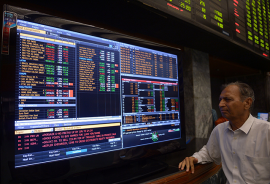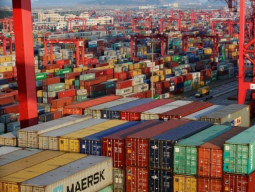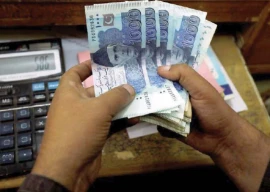
The floods have killed about 300 people, damaged one-tenth of Thailand’s rice paddy and made major roads north of Bangkok impassable.
Toyota, Ford, Honda and Isuzu have all suspended car assembly in Thailand, a regional automotive hub - a move expected to hit output of thousands of vehicles.
While most of the country’s auto factories are on the eastern coast, outside the worst affected zones, a clutch of large industrial parks north of Bangkok home to plants producing vital components have been inundated.
Electronics firms are also braced for a slowdown in output, with US groups Seagate Technology Inc. and Western Digital Corp. warning their production of hard disk drives would be hit by the disaster.
Chipmakers ON Semiconductor Corp and Microsemi Corp as well as high-tech gaint Nikon have suspended output at Thai factories, while Canon Inc. said it would temporarily move ink jet printer production to Vietnam.
The disruption is another setback to Thailand’s crucial export sector, which was still recovering from the impact of parts shortages caused by the March earthquake and tsunami disaster in Japan.
The effects of the latest disruptions will be felt outside Thailand, said the chairman of the Federation of Thai Industries, Payungsak Chartsutthipol.
“This has also affected factories abroad because many plants in Thailand are suppliers for factories outside Thailand,” he told AFP.
Outside one Honda plant in Ayutthaya, about 80 kilometres (50 miles) upriver of Bangkok, rows of cars have been almost totally submerged by the muddy water, while others were moved to an overpass to keep them dry.
Toyota on Friday said it would extend the production halt in Thailand until at least October 22.
“Thailand is a key production hub for Japanese automakers, particularly Toyota and Honda. And they will be hurting from the disruption,” he said in Tokyo.
Forecasters at the University of the Thai Chamber of Commerce have estimated the total cost of the floods to the Thai economy at about $4.9 billion - roughly 1.3-1.5% of annual gross domestic product.
Published in The Express Tribune, October 17th, 2011.
COMMENTS (2)
Comments are moderated and generally will be posted if they are on-topic and not abusive.
For more information, please see our Comments FAQ










































This is absolutely true and this is reality, only IF big companies with wisdom can really see the truth where most of thailand areas are only 2 meter above sea levels. If they still cannot understand this comparatively, it is doomed for those big guns sitting as ceo of giant companies. Wisdom does not need you to be a genius or having string of qualification or professional degree.
Natural disasters will be so prevalent in years to come by looking at the gradual increasing year to year natural disasters. We all can see this natural disasters augmented as a results of climate change or global warming coupled with cutting of trees and levelling of mountain terrain for faster development especially those countries already identified as prone hurricane, typhoon and massive storm flood seasonal disasters areas like thailand, vietnam, cambodia, mynmar and laos. This is true whe looking at ayuthaya or bangkok is just 2.5 meter above sea level. This shows the chances of more terrible disasters in the future is imminent. There, those giant companies investing in those high risk areas actually nobody to be blamed but at their own risk. As been read so many news, companies invested in know high risk areas area answerable to their stakeholder/shareholders as to why they chose that country of investment destination. Cheap labour cost shall never being an excuse of such big investment after knowing those periodic cycle of destruction. Once a teerible disaster strike, rest assured more and more will come in the future. Once a country with earthquake zone, it will alway be one, nothing can change it as now climate change is getting worst. Therefore, such big and respectable world famous companies should be wise in their investment destination or else become a laughing stock to the world.